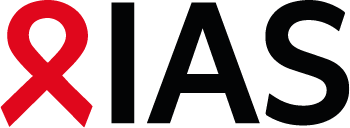Share Abstract
The recommendation not to breastfeed: HIV infected pregnant women and new mothers report emotional suffering
Abstract Content:
Background: Public health campaigns usually promote breastfeeding through campaign slogans such as 'breast is best' and 'breastfeeding is natural'. Psychodynamic approaches on motherhood emphasize the importance of breastfeeding for early mother-child bonding. HIV-infected women, however, are told to substitute breastfeeding for baby formula in many countries, including Brazil. This study seeks to investigate the main psychological issues raised by HIV-infected pregnant women and new mothers with regards to the recommendation not to breastfeed.
Methods: Free Listing interviews, a method that asks respondents questions designed to elicit responses in the form of a list, were conducted with HIV-infected pregnant women (n=30) and new mothers (n=25), aged ≥18, recruited from two maternity hospitals in Porto Alegre and Caxias do Sul, Brazil. Thematic content analysis was carried out.
Results: The fear that not breastfeeding can disclose their serostatus is common to both pregnant women and new mothers. While pregnant women talk about the importance of breastfeeding for the baby's health, many new mothers state that their babies get sick more easily and suffer emotional consequences in terms of bonding, though some women did describe behaviors they did to actively bond with their babies. Pregnant women emphasize breastfeeding as a natural part of motherhood and the new mothers report their pain, guilt and sadness for not being able to meet this role. Both groups reported making up excuses to avoid other people's questions.
Conclusions: Health care providers should help HIV-infected women to face the challenges of not being allowed to breastfeed when that is the case. Attention should be paid to social constraints due to mainstream discourses that might reinforce feelings of inadequacy and guilt. Also, counseling and group support might alleviate the difficulties related to mother-child initial bonding.
Methods: Free Listing interviews, a method that asks respondents questions designed to elicit responses in the form of a list, were conducted with HIV-infected pregnant women (n=30) and new mothers (n=25), aged ≥18, recruited from two maternity hospitals in Porto Alegre and Caxias do Sul, Brazil. Thematic content analysis was carried out.
Results: The fear that not breastfeeding can disclose their serostatus is common to both pregnant women and new mothers. While pregnant women talk about the importance of breastfeeding for the baby's health, many new mothers state that their babies get sick more easily and suffer emotional consequences in terms of bonding, though some women did describe behaviors they did to actively bond with their babies. Pregnant women emphasize breastfeeding as a natural part of motherhood and the new mothers report their pain, guilt and sadness for not being able to meet this role. Both groups reported making up excuses to avoid other people's questions.
Conclusions: Health care providers should help HIV-infected women to face the challenges of not being allowed to breastfeed when that is the case. Attention should be paid to social constraints due to mainstream discourses that might reinforce feelings of inadequacy and guilt. Also, counseling and group support might alleviate the difficulties related to mother-child initial bonding.
